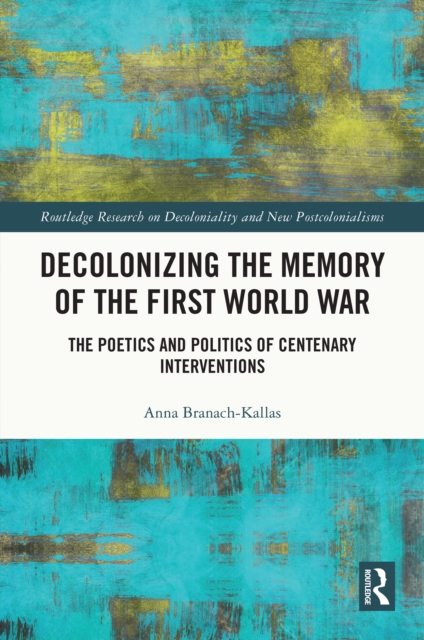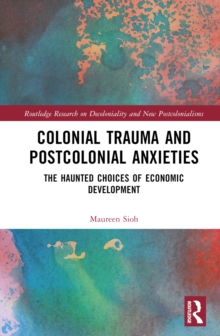
Decolonizing the Memory of the First World War : The Poetics and Politics of Centenary Interventions EPUB
by Anna Branach-Kallas
Part of the Routledge Research on Decoloniality and New Postcolonialisms series
EPUB
Description
Decolonizing the Memory of the First World War contributes to the imperial turn in First World War studies.
This book provides an exploration of the ways in which war memory can be appropriated, neglected and disabled, but also "unlearned" and "decolonized". The book offers an analysis of the experience of soldiers of colour in five novels published at the centenary of the First World War by David Diop, Raphael Confiant, Fred Khumalo, Kamila Shamsie and Abdulrazak Gurnah, examining the poetics and the politics of the conflict's commemoration. It explores continuities between WWI and earlier and later eruptions of violence, thus highlighting the long-lasting sequels of the first global conflict in the former French, British and German empires. It thereby asks important questions about the decolonization of the memory of the First World War, its tools, critical potential and limitations.
The book will appeal to academics and postgraduate students working in postcolonial literatures, postcolonial and decolonial studies, First World War studies, colonial history, human and political geography, as well as readers interested in cultural memory and overlapping legacies of violence.
Information
-
Download - Immediately Available
- Format:EPUB
- Pages:196 pages
- Publisher:Taylor & Francis
- Publication Date:01/04/2024
- Category:
- ISBN:9781040013472
Other Formats
- Hardback from £130.00
- PDF from £31.58
Information
-
Download - Immediately Available
- Format:EPUB
- Pages:196 pages
- Publisher:Taylor & Francis
- Publication Date:01/04/2024
- Category:
- ISBN:9781040013472










